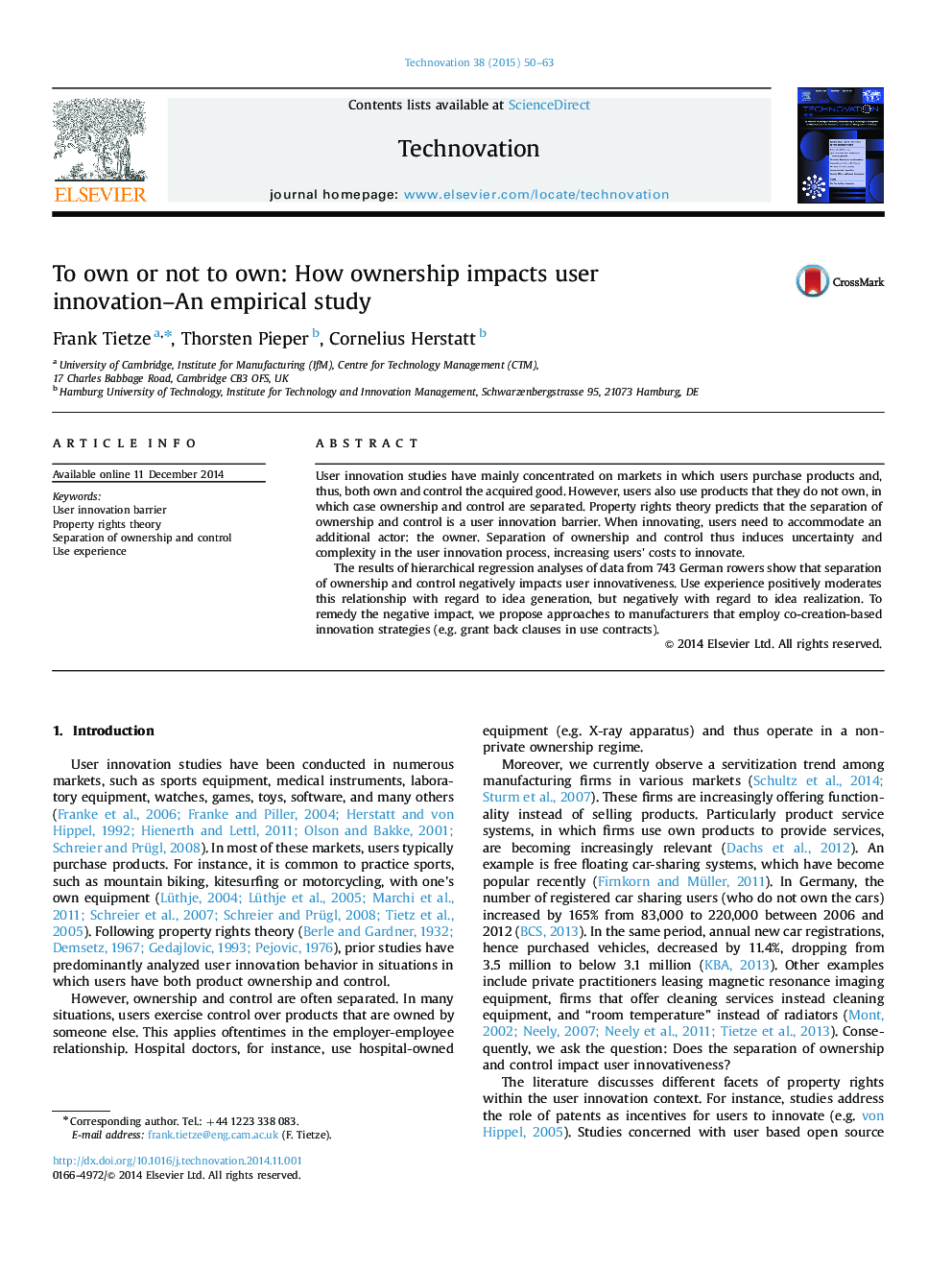| Article ID | Journal | Published Year | Pages | File Type |
|---|---|---|---|---|
| 1021850 | Technovation | 2015 | 14 Pages |
•Application of property rights theory to user innovation processes.•Contribution to debate on contextual determinants for user innovation in different domains.•Survey results show that separation of ownership and control neg. impacts users׳ probability to develop and realize ideas.•Use experience pos. moderates the relationship for idea generation, but neg. for idea realization.•Managerial implications for how to involve users in innovation processes when ownership and control is separated.
User innovation studies have mainly concentrated on markets in which users purchase products and, thus, both own and control the acquired good. However, users also use products that they do not own, in which case ownership and control are separated. Property rights theory predicts that the separation of ownership and control is a user innovation barrier. When innovating, users need to accommodate an additional actor: the owner. Separation of ownership and control thus induces uncertainty and complexity in the user innovation process, increasing users׳ costs to innovate.The results of hierarchical regression analyses of data from 743 German rowers show that separation of ownership and control negatively impacts user innovativeness. Use experience positively moderates this relationship with regard to idea generation, but negatively with regard to idea realization. To remedy the negative impact, we propose approaches to manufacturers that employ co-creation-based innovation strategies (e.g. grant back clauses in use contracts).
